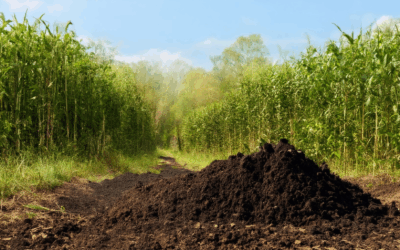Eco-conscious waste reduction is a cornerstone of sustainable living, offering a pathway to a healthier planet and a better quality of life. As global awareness grows, individuals and communities are seeking effective strategies to minimize waste generation while maximizing resource efficiency. This article delves into actionable approaches, innovative solutions, and personal habits that can help eco-conscious individuals make a meaningful impact. By exploring everything from daily habits to systemic changes, we aim to empower readers with the knowledge and tools needed to adopt a more sustainable lifestyle. Whether through reducing reliance on single-use items, promoting recycling cultures, or embracing a zero-waste mindset, the possibilities for eco-conscious waste reduction are vast and transformative.
Key Takeaways
– Reduce Plastic Use: Opt for reusable items like water bottles, shopping bags, and food containers to minimize plastic waste.
– Recycle Responsibly: Separate recyclables correctly and follow local guidelines to maximize recycling efficiency.
– Compost Organics: Start composting kitchen scraps and yard waste using worm bins for sustainable waste management.
– Reuse Items: Transform discarded objects into new purposes, such as using jars for storage or repurposing clothing.
– Support Zero-Waste Brands: Shop at stores offering refillable or package-free options to reduce waste.
– Minimize Food Waste: Plan meals carefully, use apps to track expiration dates, and compost organic scraps.
– Participate in Community Cleanups: Join local initiatives to contribute to a cleaner environment.
– Adopt a Plant-Based Diet: Reduce packaging and waste associated with meat and dairy production.
– Repair and Upcycle: Fix and reuse items instead of discarding them, promoting sustainability.
– Choose Eco-Friendly Products: Select biodegradable alternatives and energy-efficient appliances.
– Live a Minimalist Lifestyle: Declutter and focus on essential items to reduce consumption and waste.

How Can Eco-Conscious Individuals Reduce Waste Effectively?
Eco-conscious individuals can significantly reduce waste through a combination of mindful habits, sustainable practices, and innovative solutions. Here are some effective strategies:
- Reduce Food Waste: Plan meals carefully to minimize leftovers, store foods properly, and compost organic scraps. This reduces landfill contributions and feeds future gardens.
- Smart Recycling: Recycle materials like paper, glass, and metals, but remember to clean and shred them first. Avoid wasting recyclables by separating trash correctly.
- Composting: Turn kitchen scraps and yard waste into nutrient-rich compost, which can enrich soil and reduce the need for chemical fertilizers.
- Reuse Products: Repair items before discarding them and repurpose goods like jars, bottles, and clothing to reduce consumption and waste.
- Support Zero-Waste Initiatives: Patronize businesses that offer refillable products, participate in local recycling programs, and advocate for policies that promote sustainability.
By adopting these practices, eco-conscious individuals can create a meaningful impact on waste reduction while promoting a healthier planet for future generations.
Effective Ways Eco-Conscious Individuals Can Reduce Waste
Eco-conscious individuals can significantly reduce waste through a combination of daily habits, systemic changes, and community involvement. Here are some proven strategies:
- Reduce, Reuse, Recycle : Prioritize reducing unnecessary consumption, reuse items before discarding them, and recycle materials that can’t be reused. Many cities offer incentives for recycling.
- Composting**: Turn organic waste into nutrient-rich soil by composting. This reduces landfill waste and supports sustainable gardening practices.
- Minimize Plastic Use**: Opt for reusable products like cloth bags, water bottles, and containers. Reduce single-use plastics to protect ecosystems.
- Support Circular Economy Practices**: Participate in programs that allow you to lend, borrow, or share items instead of discarding them. Platforms like Patagonia Worn Wear encourage reusing clothing.
- Reduce Food Waste**: Plan meals carefully to minimize leftovers and compost scraps. Apps like Too Good To Go help reduce food waste by connecting surplus food to those in need.
- Use Public Transportation or Bike Share Programs**: Decrease reliance on single-occupancy vehicles to lower carbon emissions and reduce waste associated with vehicle ownership.
- Participate in Community Cleanups**: Join local efforts to remove litter and debris from public spaces, contributing to a cleaner environment.
- Advocate for Zero-Waste Policies**: Support initiatives aimed at reducing waste generation at the societal level, such as bans on single-use plastics or mandatory recycling programs.
By integrating these strategies into daily life, individuals can make a meaningful impact on waste reduction while promoting a healthier planet for future generations.

Strategies for Eco-Conscious Individuals to Reduce Waste
Eco-conscious individuals have numerous effective strategies to minimize waste and contribute to a healthier planet. Here are some proven approaches:
- Reduce Plastic Use: Minimize single-use plastics by carrying reusable items like cloth bags, stainless steel water bottles, and glass containers.
- Compost Scraps: Turn kitchen scraps and yard waste into nutrient-rich soil by starting a compost pile, benefiting both the environment and your garden.
- Choose Reusable Products: Opt for durable and eco-friendly alternatives such as reusable coffee cups, cloth menstrual products, and food storage containers.
- Buy in Bulk or Refillable Containers: Purchase goods in bulk to reduce packaging waste and consider refilling containers for items like laundry detergent and cleaning supplies.
- Support Eco-Friendly Businesses: Align your purchasing power with companies committed to sustainability, encouraging others to follow suit and promoting ethical consumerism.
Innovative Ways to Manage Waste
Exploring cutting-edge solutions can further enhance waste reduction efforts:
- Pyrolysis Technology: Utilize processes like pyrolysis to convert organic waste into biochar, a versatile carbon-rich material beneficial for agriculture and soil improvement, as promoted by organizations like Pyrolysium.
- Upcycling Materials: Transform discarded items into new creations, reducing landfill waste and giving objects a second life through creative recycling techniques.
- Waste-to-Energy Programs: Participate in initiatives that convert waste into energy, contributing to renewable resource utilization.
By adopting these strategies, individuals can significantly reduce their environmental footprint and inspire others to join the movement toward sustainability. Learn more about innovative solutions and sustainable living practices by visiting our blog and exploring our resources page.

Effective Strategies for Reducing Waste
Eco-conscious individuals can adopt several impactful strategies to minimize waste generation and promote sustainability:
- Reduce Plastic Use: Opt for reusable items like water bottles, shopping bags, and food containers. Refrain from using single-use plastics.
- Recycle Responsibly: Ensure recyclable materials are free from contaminants. Familiarize yourself with local recycling guidelines to maximize efficiency.
- Compost Organics: Start composting kitchen scraps and yard waste. Consider using worm composting bins for an efficient solution.
- Reuse Items: Turn discarded items into new purposes. For example, use old jars for storage or repurpose clothing into cleaning rags.
- Support Zero-Waste Brands: Patronize companies that offer refillable or package-free options, such as these zero-waste stores .
- Minimize Food Waste: Plan meals carefully, store leftovers properly, and use apps like FoodWaste App to track expiration dates.
- Participate in Community Cleanups: Join local clean-up initiatives or organize your own to contribute to a cleaner environment.
By integrating these strategies into daily life, individuals can significantly reduce their environmental footprint and promote a more sustainable future.
Best Strategies for Eco-Conscious Individuals to Reduce Waste
Eco-conscious individuals can significantly reduce waste through mindful actions and sustainable habits. Here are proven strategies to make a positive impact:
- Recycle Responsibly : Separate paper, glass, metal, and plastic from organic waste. Use designated recycling bins and ensure your local center accepts certain types of waste.
- Reduce Plastic Use : Opt for reusable items like cloth bags, water bottles, and food containers. Avoid single-use plastics and choose biodegradable alternatives when possible.
- Compost : Turn kitchen scraps and yard waste into nutrient-rich soil by starting a compost pile. This reduces landfill waste and supports sustainable gardening.
- Use Reusable Products : Invest in durable and eco-friendly items like cloth menstrual pads, reusable clothing, and eco-friendly cleaning supplies.
- Manage Food Waste : Plan meals carefully to minimize leftovers, store food properly to extend shelf life, and compost organic scraps instead of discarding them.
- Repair and Upcycle : Fix worn-out clothes, furniture, and household items rather than replacing them. Repurpose materials into new creations.
- Sustainable Household Items : Choose eco-friendly products like bamboo toothbrushes, plant-based cleaning agents, and energy-efficient appliances.
- Eco-Friendly Diet : Adopt a plant-based diet to reduce packaging and waste associated with meat and dairy production. Buy seasonal fruits and vegetables to minimize transportation emissions.
- Community Involvement : Participate in local clean-up drives, support zero-waste initiatives, and advocate for policies promoting sustainability and waste reduction.
- Minimalist Lifestyle : Declutter your space, focus on essential items, and avoid excessive consumerism. Prioritize quality over quantity and regularly review your belongings.
By consistently implementing these strategies, individuals can contribute meaningfully to environmental conservation and promote a healthier planet for future generations.

Practical Ways to Reduce Waste
Eco-conscious individuals can significantly reduce waste through mindful habits and sustainable practices. Here are some practical strategies:
- Recycle Responsibly:** Make sure to recycle paper, glass, metal, and plastic wherever possible. Familiarize yourself with local recycling guidelines to maximize efficiency.
- Compost Organic Waste:** Turn kitchen scraps and yard waste into nutrient-rich compost, which can be used in gardens or disposed of properly.
- Reduce Plastic Use:** Opt for reusable items like cloth bags, water bottles, and food containers to minimize plastic waste.
- Buy Bulk:** Purchase products in bulk to reduce packaging waste, especially for items like grains, nuts, and household goods.
- Proper Disposal:** Dispose of medications and electronic waste responsibly. Many communities offer special programs for hazardous materials.
- Eat Less Meat and Dairy:** A plant-based diet reduces packaging and food waste, while also lowering your carbon footprint.
- Minimize Food Waste:** Plan meals carefully to avoid food spoilage and buy only what you need.
- Upcycle Old Items:** Repurpose or recycle old clothes, furniture, and household goods instead of sending them to landfills.
To further your knowledge, check out Pyrolysium , a leading platform dedicated to sustainable living and innovative waste solutions. Explore their resources on advanced waste management techniques and eco-friendly technologies.
Competitors like Ecosia and Olio also offer valuable insights and tools for reducing waste effectively.




0 Comments